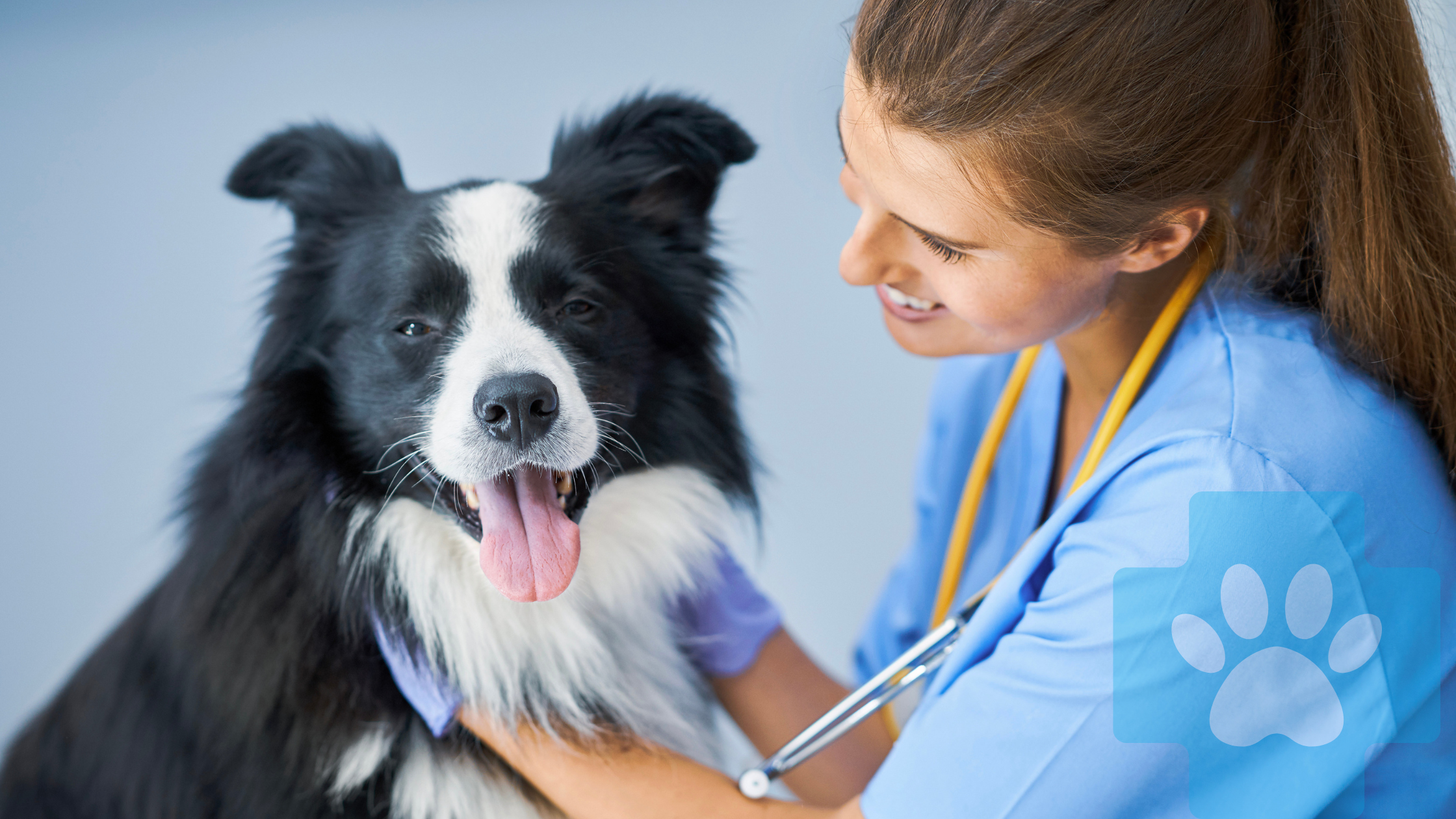Common Dog Diseases: How to Protect Your Pet
Owning a dog is a joyful experience, but it also comes with the responsibility of keeping your furry friend healthy and safe. Dogs, like humans, can suffer from various diseases, some of which can be serious or even life-threatening. Understanding these common dog diseases, their symptoms, and how to prevent them is key to ensuring your pet’s well-being. In this guide, we’ll explore some of the most common illnesses that affect dogs, including their symptoms and effective prevention methods, to help you protect your beloved companion.
Most Common Dog Diseases
- Canine Parvovirus– It is a contagious virus mainly affecting dogs and wolves. CPV is highly contagious and is spread from dog to dog by direct or indirect contact with their feces.
Symptoms– Lethargy, depression and loss or lack of appetite, followed by a sudden onset of high fever, vomiting and diarrhea
Prevention– Canine Parvovirus vaccine is given as part of a combination shot which includes Distemper, Canine Adenovirus and Parainfluenza vaccines. These shots are given every 3 to 4 weeks from the time a puppy is six weeks old until he is at least sixteen weeks of age. - Heartworms– Dirofilaria Immitis also known as heartworm is a parasitic roundworm that is a type of filarial small thread like worm which causes Dirofilariasis. It is spread from host to host through the bites of mosquitoes.
Symptoms– Coughing, breathing difficulty, lethargy, weight loss, swollen belly and pale gums.
Prevention– There are many approved heartworm prevention medicines available including monthly pills, topical liquids and injections. Some products also protect against other parasites. - Leptospirosis– It is a bacterial infection that can affect animals. It’s caused by the Bacterium Leptospira which can be found in contaminated water or soil.
Symptoms– Fever, vomiting, abdominal pain, diarrhea, refusal to eat, severe weakness, depression, stiffness and severe muscle pain.
Prevention– There is a vaccination against leptospirosis. The initial series is usually two shots given four weeks apart followed by annual boosters. The vaccine is safe and highly effective but it doesn’t protect against all strains of the bacteria. - Kennel cough– It is a respiratory infection that causes inflammation of the voice box and windpipe.
Symptoms- The most common symptoms of kennel cough include dry cough, runny nose, sneezing and eye discharge.
Prevention– Vaccination is the only effective way to prevent kennel cough and is especially necessary if your dog spends lots of time with other dogs or goes into kennels. Kennel cough vaccine lasts 12 months and should be repeated every year. - Rabies– It is a fatal viral disease that affects the central nervous system and can be spread to humans and pets through an infected animal’s bite or scratch.
Symptoms– The symptoms include fever and abnormal sensations at the site of exposure. Rabies can present in two forms, Furious rabies where there is hyperactivity and hallucinations. Paralytic rabies where it’s affected by paralysis and coma.
Prevention– Rabies is a totally vaccine preventable disease. Vaccinate your pets against rabies as required by law and keep their vaccinations up to date. - Ringworm– A highly contagious disease that can infect the skin, hair and nails.
Symptoms– Circular areas of hair loss often with a red and crusty edge· Broken hair and a poor hair coat. Dry and scaly skin.
Prevention– Cleaning pet blankets and other bedding from your cat or dog’s quarters. Regularly dispose of any hairs from your pet’s grooming brush. Remove skin cells and hair from your home by regularly vacuuming the house. Disinfect other common areas of the house where your pets tend to live. - Hepatitis– Infectious canine hepatitis is an acute contagious disease in dogs caused by the canine adenovirus 1. The virus targets the infected pet’s liver, lungs, kidneys, spleen and lining of blood vessels.
Symptoms– Fever, lethargy, inappetence, vomiting, diarrhea, abdominal pain, dehydration, conjunctivitis, petechial hemorrhages and cough.
Prevention– A mandatory vaccine is the most widely used and important preventive measure for infectious canine hepatitis. Your dog will typically receive this vaccine along with their canine distemper vaccinations. - Lyme disease– It is a bacterial infection that can affect dogs, cats, horses, and humans. It is caused by Bacterium Borrelia Burgdorferi which is transmitted through the bite of certain ticks.
Symptoms– Limping, fever, loss of appetite, decreased activity level, swollen lymph nodes and painful swollen joints.
Prevention– The Lyme vaccine helps to prevent Lyme disease in dogs. Walking in tall bushes and tick infested areas should be avoided. - Cataracts– A cloudiness of the lens that can cause vision impairment and blindness.
Symptoms– The eyes appear milky, white, blue or grey. The dog may bump into things especially in low light. The dog may be anxious and withdrawn. The dog will squint, scratch and blink excessively. The blood vessels in the eyes may appear red or inflamed. The dog may be reluctant to climb stairs or jump from things.
Prevention- It’s not possible to completely prevent cataracts though regular eye exams, a healthy lifestyle and eye supplements will help reduce the chance of it. - Mitral valve disease– A heart problem that causes blood to leak backward when the heart pumps.
Symptoms– The earliest sign of MVD is usually a heart murmur. Coughing, faster breathing, getting tired easily or after little effort, weight loss, decreased appetite, nasal discharge, Restlessness and fainting.
Prevention– There is no known way to prevent mitral valve disease (MVD) in dogs, other than to remove affected dogs from breeding. Low fat diet and healthy lifestyle is suggested. - Canine distemper– It is a highly contagious viral disease that affects a dog’s respiratory, gastrointestinal and nervous systems.
Symptoms– Fever, discharge, Coughing/sneezing, Vomiting/diarrhea, neurological signs, skin sores and thickening of the nose and foot pads.
Prevention– Canine distemper is not curable but vaccination is the best way to prevent it. The disease is spread through contact with infected saliva, urine, feces and respiratory secretions. Puppies should receive a series of at least three distemper vaccines between the ages of 2 and 4 months. They should then receive a booster shot a year later. - Tick Fever– It is caused by a bacteria called Rickettsia Rickettsii. This bacteria is found in the saliva of certain ticks. When a tick bites a dog, the bacteria is transmitted into the dog’s bloodstream.
Symptoms– High Fever, loss of appetite, facial or limb swelling, swollen lymph nodes, vomiting/diarrhea, cough, joint inflammation and abdominal pain.
Prevention– Dogs are very susceptible to tick bites and tickborne diseases. Vaccines are not available for most of the tick borne diseases that dogs can get and they don’t keep the dogs from bringing ticks into your home. Using tick prevention products on the floor and the dog’s skin is recommended. - Arthritis– Also known as osteoarthritis (OA), is a chronic progressive joint disease that can affect dogs of all ages, sizes, and breeds. It causes dogs to lose cartilage in their joints, which can lead to pain, inflammation, and difficulty moving.
Symptoms– Stiffness, lameness, limping, especially after rest or exercise. Reluctance to walk, run, climb stairs or to play. Irritability, depression and unusual aggression. Muscle wasting or weakness and unusual urination in the house. Loss of appetite or unusual weight gain and frequent slipping while moving.
Prevention– Joint supplements may help a dog’s body rebuild cartilage and slow down damage. Walking and swimming are the best exercises for pets with arthritis. It is vital to keep your dog at a healthy weight to reduce extra stress on their joints. Therefore, adding fish oil to your dog’s diet reduces joint inflammation and helps alleviate pain. Feeding chicken feet broth thrice a week helps. - Hip Dysplasia– Hip Dysplasia is an abnormal development of the hip joint in medium and large-sized dogs. It is characterized by a loose joint and subsequent degenerative joint disease (Osteoarthritis). Excessive growth, exercise, nutrition and hereditary factors affect the occurrence of hip dysplasia.
Symptoms– Difficulty in moving, back pain, painful whining, decreased activity level, change in muscle development in the shoulder and difference in walking and moving.
Prevention- Joint supplements, physiotherapy, a healthy/nutritious diet, avoiding neutering at young age, feeding chicken feet broth thrice a week and not buying from backyard breeders are a few ways to prevent the disease.
Conclusion:
Caring for your dog’s health involves more than just providing food, shelter, and love—it requires awareness of the common diseases that can affect them. By learning to recognize symptoms early and taking preventive measures such as vaccinations, proper hygiene, and a balanced diet, you can help your pet lead a longer, healthier life. Regular vet check-ups and being informed about potential risks are crucial steps to ensure that your dog remains happy and active. With the right knowledge and care, you can provide your canine companion with the protection they need to thrive.






